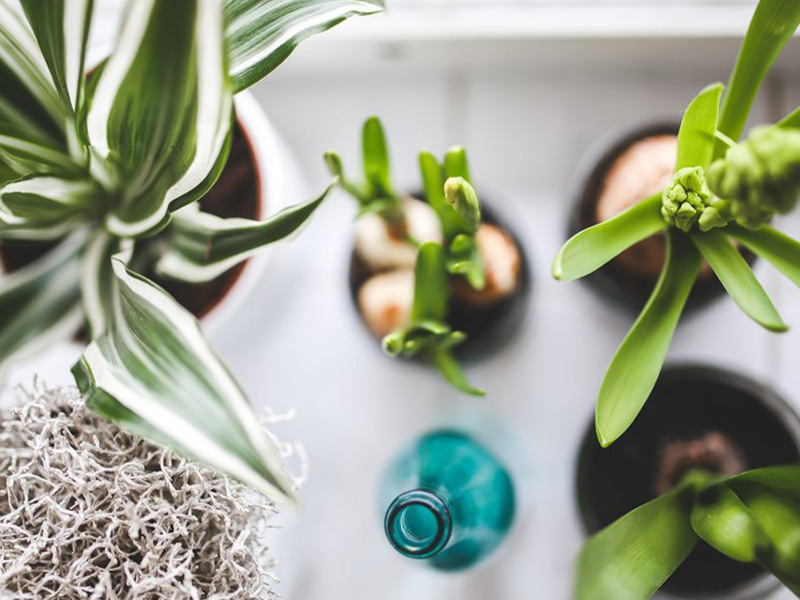
Indoor plants, allies for your health
13 de mayo de 2019
Plants have always been a part of men’s lives, as they met their different needs (food, protection, health, and interactions with others). Today, they can be found inside homes as ornaments or decorations. However, some of them may have other virtues and become a health asset.
According to some studies, indoor air is more polluted than the air outdoors. In fact, it includes toxic products and materials (flooring, wall and paint coatings) which are harmful for the environment. At low doses, they can cause allergies and headaches, while at higher doses they can have carcinogenic effects.
To remedy this, plants can be installed to clean up your home. Let’s have a look at 10 common life-saving plants!
Aglaonema is a bushy plant that is easy to maintain. It erases the effects of formaldehyde, benzene and toluene (paint, glue, stain removers, wood).
Anthurium is very aesthetically pleasing, with its red flowers. It is recommended to fight against the effects of xylene and ammonia in household products.
Chamaedorea is a dwarf palm that requires little care. The plant absorbs ammonia, benzene, formaldehyde and xylene.
Chlorophytum, also called “spider plant” is very robust. It contributes to better oxygenation and absorption of toxic products and carbon monoxide.
Dracaena is characterized by long tufts of leaves that allow for the depollution of the atmosphere.
Ficus benjamina, also called “weeping fig,” looks nice with its light look and its beautiful foliage. It absorbs formaldehyde, xylene and ammonia.
Ficus elastica is the indoor plant par excellence. It produces a lot of oxygen and reduces the effects of ammonia, toluene and xylene.
Hedera or ivy is invigorating and drought resistant. It absorbs benzene, formaldehyde and trichloroethylene or xylene from paints, inks, plastics and detergents.
Philodendron is easy to grow. It oxygenates the air. It reduces the effects of formaldehyde (agglomerated wood, insulation walls, carpet glues, paints, household products).
Scindapsus is grown in suspension or along a stake. It moistens dry air and absorbs pollutants from decorative materials.
Native to tropical American forests, spathiphyllum is an elegant plant with white flowers that can bloom all year round. IT neutralizes pollutants from decorative materials, household products and tobacco smoke.